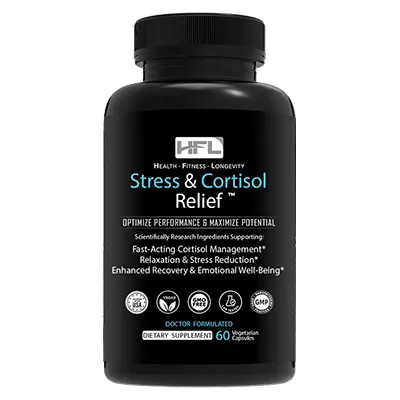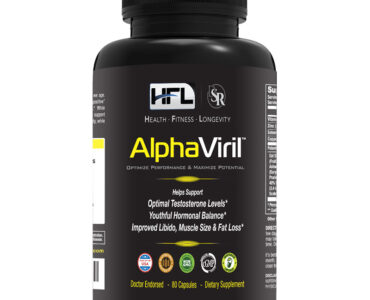Table of Contents
What is Cortisol and Why It Matters
Cortisol is one of the most essential, yet most misunderstood hormones in the human body. Often called the “stress hormone,” cortisol plays a vital role in maintaining your body’s internal balance and preparing it for external challenges. However, when cortisol levels become dysregulated—either too high or too low—it can lead to a wide range of physical and mental health issues. Understanding cortisol’s function, how it responds to stress, and its impact on long-term health is critical for maintaining overall well-being.
Understanding Cortisol – The Stress Hormone
Cortisol is a glucocorticoid hormone produced by the adrenal glands, located above your kidneys. It’s regulated by the hypothalamic-pituitary-adrenal (HPA) axis, a complex network that manages the body’s stress response.
When your brain perceives a threat—whether physical (e.g. injury) or emotional (e.g. work anxiety)—it signals the release of cortisol. This hormone then triggers the “fight-or-flight” response, enabling your body to take quick action by:
-
Increasing blood sugar (glucose) for immediate energy
-
Raising blood pressure and heart rate
-
Suppressing non-essential functions like digestion and immune response
While this reaction is crucial for survival, it’s designed to be temporary. Problems arise when modern life creates persistent stress that keeps cortisol levels elevated well beyond what the body can tolerate.
Short-Term vs Chronic Stress Effects
Not all stress is harmful. In fact, short-term cortisol spikes can be beneficial, helping you stay alert, focused, and motivated during high-stakes situations—like exams, presentations, or emergencies.
Short-term cortisol benefits include:
-
Heightened memory function
-
Increased pain threshold
-
Enhanced immune readiness
-
Better survival response
However, chronic stress—caused by constant work pressure, lack of sleep, poor diet, relationship conflict, or financial worries—leads to prolonged cortisol elevation, which throws your body into a continuous state of alert.
Chronic high cortisol levels can lead to:
-
Disrupted sleep patterns
-
Impaired cognitive function (brain fog, memory loss)
-
Weight gain, especially in the abdominal area
-
Weakened immune system
-
Elevated blood sugar and insulin resistance
-
Hormonal imbalances, such as low testosterone or estrogen
Your body is simply not designed to handle stress 24/7. Long-term cortisol imbalance shifts the body from a state of resilience to burnout and breakdown.
How Elevated Cortisol Impacts Your Health
Prolonged elevation of cortisol doesn’t just make you feel stressed—it has real, measurable effects on nearly every system in your body.
🧠 Cognitive and Mental Health
High cortisol has been linked to:
-
Anxiety and depression
-
Memory issues due to hippocampal shrinkage
-
Difficulty concentrating
-
Irritability and emotional reactivity
🛌 Sleep Disruption
Cortisol should naturally decline in the evening to allow melatonin (the sleep hormone) to rise. But when cortisol stays high:
-
You struggle to fall or stay asleep
-
Wake up feeling tired even after full sleep
-
Experience disrupted REM cycles
🍔 Weight Gain and Metabolic Problems
Cortisol encourages fat storage—especially visceral (belly) fat. It also promotes cravings for sugar and processed foods, further disrupting blood sugar and increasing the risk of:
-
Obesity
-
Type 2 diabetes
-
High cholesterol and blood pressure
🛡️ Immune Suppression
While cortisol can temporarily suppress inflammation, chronic exposure weakens your immune defenses, leaving you more susceptible to:
-
Frequent colds or infections
-
Slow wound healing
-
Autoimmune flare-ups
🩺 Hormonal and Reproductive Health
Cortisol can interfere with the production of sex hormones, leading to:
-
Irregular periods or fertility issues in women
-
Reduced libido and testosterone in men
-
Worsening of conditions like PCOS or adrenal fatigue
Signs You May Have High Cortisol Levels
Recognizing the symptoms of elevated cortisol is critical to protecting your long-term health. While cortisol is essential for managing stress and energy, chronically high levels—also known as hypercortisolism—can quietly damage your body and mind over time. Many people suffer from high cortisol without realizing it, often misattributing symptoms to aging, burnout, or lifestyle factors.
In this section, we break down the key physical, mental, and diagnostic signs of elevated cortisol levels—and what you can do about them.
Physical Symptoms (e.g., Weight Gain, Fatigue)
When cortisol levels remain elevated for extended periods, your body shifts into survival mode. This can manifest in a number of physiological changes, many of which are commonly overlooked or misdiagnosed.
🔹 Unexplained Weight Gain, Especially in the Abdomen
High cortisol promotes fat storage—particularly around the midsection. It also increases appetite and cravings for sugary, high-calorie foods.
Keyword Target: high cortisol and belly fat, cortisol and weight gain
🔹 Persistent Fatigue and Low Energy
Despite feeling wired or anxious, many people with high cortisol also feel exhausted, especially in the morning. This paradox—tired but wired—is a hallmark of HPA axis dysfunction.
Related Keyword: cortisol fatigue symptoms, adrenal fatigue
🔹 High Blood Pressure and Heart Palpitations
Cortisol raises blood pressure by constricting blood vessels. If you’re experiencing sudden spikes in BP or a rapid heartbeat, cortisol imbalance may be the cause.
🔹 Sleep Disruption
Cortisol should naturally fall at night, but if it remains high, it can make it difficult to fall asleep or stay asleep—leading to insomnia and non-restorative rest.
Search Keyword Focus: cortisol and sleep issues, high cortisol at night
🔹 Frequent Illness and Slow Recovery
Cortisol suppresses the immune system. If you’re catching colds more often or healing slowly, this may be a sign of hormone-related immune dysfunction.
Mental and Emotional Symptoms
Cortisol doesn’t just affect your body—it has a direct and powerful impact on your brain chemistry and emotional regulation. Prolonged exposure can dramatically alter mood, cognition, and psychological resilience.
🔹 Increased Anxiety and Panic
Cortisol primes your body to be on high alert. Chronically high levels can lead to generalized anxiety, restlessness, or even panic attacks.
Long-Tail Keyword: cortisol and anxiety symptoms
🔹 Depression or Mood Instability
Dysregulated cortisol can decrease serotonin and dopamine levels, contributing to low mood, irritability, or emotional numbness.
🔹 Brain Fog and Poor Memory
Excess cortisol shrinks the hippocampus—the part of the brain responsible for learning and memory. This can lead to forgetfulness, difficulty concentrating, and slowed processing.
Search Focus: high cortisol cognitive symptoms, cortisol and brain fog
🔹 Low Motivation and Burnout
If you’ve lost interest in things you used to enjoy, or feel emotionally flat, your cortisol levels may be to blame. This is often an early warning sign of burnout or HPA axis exhaustion.
Testing and Diagnosis Options
If you’re experiencing multiple symptoms of high cortisol, testing is the only reliable way to confirm hormonal imbalance. Fortunately, cortisol levels can be assessed accurately with a few simple tests.
🔹 Saliva Cortisol Test (4-Point Diurnal Pattern)
This is one of the most accurate ways to test cortisol throughout the day. It tracks natural fluctuations and can detect whether levels remain too high (or too low) at specific times.
Keyword Use: cortisol saliva test, best test for cortisol levels
🔹 Blood Test (Serum Cortisol)
A single blood draw can measure morning cortisol levels, often used for initial screening. However, it may miss patterns of dysregulation that occur later in the day.
🔹 Urine Cortisol Test (24-Hour Collection)
This method captures overall cortisol production across a full day. It’s especially useful for diagnosing conditions like Cushing’s syndrome or adrenal hyperfunction.
🔹 DUTCH Test (Dried Urine Test for Comprehensive Hormones)
An advanced option that evaluates cortisol, cortisone, and hormone metabolites, providing a complete picture of adrenal health.
How to Reduce Stress and Lower Cortisol Naturally
Lowering cortisol isn’t just about avoiding stress — it’s about creating a supportive lifestyle that allows your body to return to a state of balance. The good news? You don’t need expensive treatments or prescriptions to start. With the right nutrition, lifestyle habits, and mind-body techniques, you can naturally bring your cortisol levels down and protect your long-term health.
In this section, you’ll discover the most effective natural strategies backed by science for managing stress and restoring hormonal balance.
Nutrition and Cortisol – What to Eat & Avoid
Your diet plays a powerful role in how your body regulates cortisol. Certain foods can help reduce inflammation, stabilize blood sugar, and support adrenal function—while others can do the opposite.
✅ Foods That Help Lower Cortisol
-
Complex carbs (quinoa, oats, sweet potatoes): Support serotonin production, which helps regulate mood and cortisol.
-
Leafy greens (spinach, kale): Rich in magnesium, which calms the nervous system and supports adrenal health.
-
Fatty fish (salmon, sardines): High in omega-3s, which reduce inflammation and blunt cortisol response.
-
Fermented foods (yogurt, kimchi, kefir): Improve gut health, which is directly tied to stress and hormone regulation.
-
Herbal teas (ashwagandha, chamomile, holy basil): Adaptogens and nervines that help reduce stress hormones naturally.
Target Keywords: cortisol reducing foods, diet to lower cortisol, what to eat for stress
❌ Foods to Avoid That Spike Cortisol
-
Refined sugar: Causes blood sugar spikes and crashes, triggering cortisol release.
-
Caffeine (excess): Overstimulates the adrenal glands, especially when consumed in the afternoon.
-
Alcohol: Interferes with sleep, increases inflammation, and disrupts hormone production.
-
Processed foods: High in sodium, additives, and trans fats that stress your system and hinder cortisol clearance.
Search-Friendly Terms: foods that raise cortisol, cortisol and sugar, adrenal fatigue diet
Lifestyle Tips – Sleep, Exercise, and Sunlight
Certain lifestyle habits are scientifically proven to help lower cortisol levels naturally. These aren’t just “nice-to-haves”—they’re core strategies for long-term hormonal health and resilience.
💤 Prioritize Deep, Restorative Sleep
Cortisol follows a diurnal rhythm, peaking in the morning and falling at night. Poor sleep disrupts this rhythm and creates a vicious cycle of stress and exhaustion.
Tips for better sleep hygiene:
-
Keep a consistent bedtime and wake time
-
Limit screens and blue light after sunset
-
Avoid caffeine after 2 PM
-
Create a dark, cool sleep environment
Keywords: cortisol and sleep, how to improve sleep naturally, insomnia and high cortisol
🏃 Exercise in Moderation
Exercise helps reduce cortisol — but only when balanced. Overtraining, especially without enough recovery, can actually increase cortisol production.
Cortisol-friendly workouts:
-
Moderate-intensity cardio (e.g. walking, cycling)
-
Strength training 2–3x per week
-
Restorative yoga or stretching
-
Daily movement over intensity (10K steps, gentle mobility)
Related Keywords: best exercise to lower cortisol, overtraining and cortisol, cortisol and working out
🌞 Get Morning Sunlight
Exposure to natural light in the morning helps reset your circadian rhythm, which regulates cortisol and melatonin production. Aim for 15–30 minutes of direct sunlight within 1 hour of waking.
Mindfulness Techniques – Meditation, Breathing, Yoga
One of the fastest and most effective ways to lower cortisol naturally is to activate the parasympathetic nervous system—the part of your body responsible for “rest and digest.” Mindfulness techniques can calm the mind, slow the breath, and reverse the body’s stress response in minutes.
🧘 Meditation
Regular meditation has been shown to significantly reduce cortisol levels, especially when practiced daily.
Best practices:
-
Try guided meditations (10–15 minutes daily)
-
Use apps like Calm, Headspace, or Insight Timer
-
Focus on deep breathing and body awareness
🌬️ Breathing Exercises
Slow, controlled breathing directly signals your brain that you’re safe, switching off the fight-or-flight response.
Techniques that lower cortisol fast:
-
Box breathing: Inhale 4, hold 4, exhale 4, hold 4
-
4-7-8 breathing: Inhale 4, hold 7, exhale 8
-
Nasal breathing: Encourages diaphragmatic (belly) breathing
🧘♀️ Gentle Yoga or Tai Chi
These slow, intentional movement practices combine breath, movement, and awareness, making them powerful tools for cortisol regulation.
Benefits include:
-
Lowered heart rate and blood pressure
-
Reduced inflammation markers
-
Improved emotional resilience
✅ Takeaway: Small Shifts, Big Results
You don’t have to overhaul your life to lower cortisol, but consistent, supportive habits will make a big difference. By optimizing your nutrition, improving sleep, exercising smartly, and practicing daily mindfulness, you’ll not only reduce stress but you’ll reclaim your energy, mood, and long-term health.
Supplements and Herbs for Cortisol Support
For those looking to go beyond diet and lifestyle, supplements and herbs can play a powerful role in supporting healthy cortisol levels and stress resilience. From time-tested adaptogens to key vitamins, the right natural compounds can help modulate the body’s stress response, balance adrenal function, and promote calm energy.
Below are the most science-backed supplements and nutrients for reducing cortisol naturally.
Adaptogens (e.g., Ashwagandha, Rhodiola)
Adaptogens are a class of herbs that help the body adapt to stress by balancing cortisol and improving resilience. Unlike stimulants or sedatives, adaptogens normalize physiological processes without overcorrecting.
🌿 Ashwagandha (Withania somnifera)
One of the most researched adaptogens, ashwagandha, has been shown in clinical studies to lower cortisol by up to 30% and reduce anxiety, fatigue, and insomnia.
Keyword Target: ashwagandha for cortisol, best adaptogen for stress
🌿 Rhodiola Rosea
Rhodiola improves mental focus, stamina, and emotional resilience, particularly in cases of burnout. It’s especially effective for stress-related fatigue and mental exhaustion.
Related Keyword: rhodiola for adrenal fatigue, rhodiola stress support
🌿 Holy Basil (Tulsi)
A sacred plant in Ayurvedic medicine, Tulsi reduces stress-induced anxiety, supports mood stability, and helps normalize blood sugar—important for cortisol regulation.
🌿 Eleuthero (Siberian Ginseng)
Known to boost endurance and reduce the physiological impact of stress, eleuthero can help re-regulate cortisol over time.
Key Vitamins and Minerals for Stress Support
Deficiencies in certain nutrients can impair the body’s ability to cope with stress and maintain healthy cortisol rhythms. The following micronutrients are critical for adrenal function, neurotransmitter balance, and energy metabolism.
💊 Vitamin C
The adrenal glands use more Vitamin C than any other organ. Supplementation may help reduce elevated cortisol after intense physical or emotional stress.
SEO Keyword: vitamin C for cortisol, antioxidants for stress
💊 Magnesium
This “calming” mineral helps regulate the nervous system and reduce excitability. Low magnesium is directly associated with increased cortisol, anxiety, and sleep problems.
Search Intent Keyword: magnesium stress support, magnesium and cortisol
💊 B Vitamins (Especially B5, B6, and B12)
B vitamins are essential for energy production, neurotransmitter synthesis, and adrenal gland health. B5 and B6 in particular are depleted during chronic stress.
💊 Zinc
Plays a role in hormone regulation and immune defense. Zinc deficiency has been linked to increased cortisol and lowered resilience to psychological stress.
What Science Says About Natural Cortisol Supplements
While natural supplements are widely used, what does the research say about their effectiveness for cortisol balance?
🔬 Clinical Studies on Adaptogens
-
Ashwagandha (KSM-66, Sensoril): Multiple double-blind, placebo-controlled trials show consistent reductions in serum cortisol and improved sleep and anxiety levels.
-
Rhodiola Rosea: Studies indicate improvements in cognitive function and reduced fatigue under high stress, especially among students and professionals.
🔬 Vitamin C and Exercise-Induced Cortisol
Research published in the Journal of Nutritional Biochemistry shows that Vitamin C supplementation significantly reduced post-exercise cortisol spikes, improving recovery and resilience.
🔬 Magnesium and HPA Axis Regulation
Magnesium has been shown to inhibit ACTH (Adrenocorticotropic Hormone) release, which reduces cortisol production at its source in the adrenal glands.
✅ Pro Tip: Quality Matters
Not all supplements are created equal. Look for:
-
Standardized extracts (e.g., KSM-66 Ashwagandha, Rhodiola 3% rosavins)
-
Third-party testing for purity and potency
-
Synergistic formulas that combine adaptogens with vitamins (e.g., ashwagandha + B-complex + magnesium)
⚠️ Caution: When to Talk to Your Doctor
Natural supplements are generally safe, but they can interact with medications (e.g., SSRIs, thyroid meds, blood pressure drugs) or may not be suitable during pregnancy. Always consult a healthcare provider if you have underlying conditions or are taking prescription drugs.
HFL’s Approach to Cortisol Relief – Does It Work?
With the rising awareness of cortisol’s impact on health, many people are turning to natural supplements for support. One such product making waves is HFL’s “Stress & Cortisol Relief”, a supplement marketed as a complete solution for stress, anxiety, fatigue, and hormonal imbalance.
But does it live up to the claims? In this section, we break down the brand’s philosophy, ingredient list, customer feedback, and the scientific merit behind its formulation.
Overview of HFL and Its Philosophy
HFL (Health, Fitness & Longevity) is a wellness company founded by Dr. Sam Robbins, a medical researcher and nutrition specialist focused on evidence-based health solutions. The company emphasizes:
-
All-natural, clinically backed ingredients
-
Doctor-formulated, real-world-tested formulas
-
A holistic view of health: addressing root causes, not just symptoms
Their cortisol support product aims to help people regain energy, mental clarity, and emotional balance by restoring HPA axis function and supporting adrenal health.
Key Ingredients in HFL’s Stress & Cortisol Relief Supplement
The formula behind HFL’s product is centered on adaptogens, mood stabilizers, and adrenal nutrients, specifically chosen for their synergy and clinical effectiveness.
🌿 Notable Ingredients Include:
-
Ashwagandha (Sensoril®) – A highly bioavailable form of ashwagandha shown to reduce cortisol by up to 30%
-
Rhodiola Rosea – Reduces fatigue and boosts focus, especially under chronic stress
-
L-Theanine – An amino acid from green tea that promotes relaxation without drowsiness
-
Phosphatidylserine – A phospholipid shown to blunt cortisol spikes during acute stress
-
Magnesium & B-Vitamins – For nervous system support and adrenal balance
These ingredients work together to help manage both the physical and emotional symptoms of high cortisol, without harsh stimulants or sedatives.
Real User Reviews and Testimonials
One of the most compelling aspects of HFL’s offering is the volume of positive customer feedback, especially from individuals dealing with chronic stress, burnout, or adrenal fatigue.
⭐ Common Themes from Verified Reviews:
-
“I sleep better and wake up actually rested.”
-
“This is the only supplement that noticeably lowered my anxiety and irritability.”
-
“My afternoon crashes are gone. I feel like myself again.”
Important Note: Results may vary depending on diet, lifestyle, and consistency of use. Some users report noticeable benefits within 7–14 days, while others experience full results after 30 days.
Scientific Backing and Safety Information
Unlike many “proprietary blends” on the market, HFL provides transparent dosing and sources ingredients with clinical backing.
📊 Scientific Support:
-
Sensoril® Ashwagandha: Double-blind studies show statistically significant reductions in cortisol and improvement in mood, energy, and sleep quality.
-
Phosphatidylserine: Clinical trials show lowered cortisol response to stress in athletes and professionals.
-
L-Theanine + Rhodiola: The combination is synergistic for cognitive performance under pressure.
✅ Safety & Quality Standards:
-
GMP-certified manufacturing in the USA
-
No artificial colors, preservatives, or fillers
-
Gluten-free, dairy-free, and non-GMO
-
1-year satisfaction guarantee
🧠 Final Verdict: Is HFL’s Cortisol Relief Worth It?
For those looking for a natural, well-rounded cortisol support solution, HFL’s Stress & Cortisol Relief appears to be a strong contender. It combines proven adaptogens with key nutrients and is backed by credible research and overwhelmingly positive reviews.
While no supplement can fully substitute for good lifestyle habits, HFL may offer the extra edge needed to break out of the stress cycle and start feeling like yourself again.
Final Thoughts – Taking Control of Your Stress
Understanding how cortisol functions—and how it can spiral out of balance—empowers you to take control of your health in a meaningful way. From recognizing the physical and emotional signs of high cortisol, to learning natural ways to reduce stress, this guide has shown that relief is not only possible, but sustainable.
🌱 What We’ve Learned
-
Cortisol is vital, but chronic elevation leads to fatigue, mood issues, weight gain, and more
-
Lifestyle changes, including better sleep, nutrition, movement, and mindfulness, have a real impact
-
Supplements like adaptogens and key nutrients can offer additional support for the overwhelmed body
-
Brands like HFL offer comprehensive, research-backed formulations that align with these needs
💡 Sustainable Change Over Quick Fixes
While it’s tempting to seek immediate results, true recovery from chronic stress and cortisol imbalance takes time and consistency. Think of this not as a “30-day fix,” but as the start of a lifestyle shift that nourishes your body, mind, and hormones over the long term.
Whether it’s tweaking your sleep schedule, incorporating meditation, or supporting your body with the right nutrients—every small step matters.
✅ Next Steps: Explore What Works for You
If you’re looking for structured support to complement your lifestyle changes, you may want to consider natural solutions like HFL’s Stress and Cortisol Relief. With adaptogens, mood-regulating nutrients, and transparent formulation, it’s designed to help rebalance your body from the inside out.
🧘♀️ Take a step toward calm, focused energy—without relying on stimulants or harsh meds.
Explore more about Stress and Cortisol Relief HFL and see if it aligns with your journey toward better stress management and hormonal balance.








